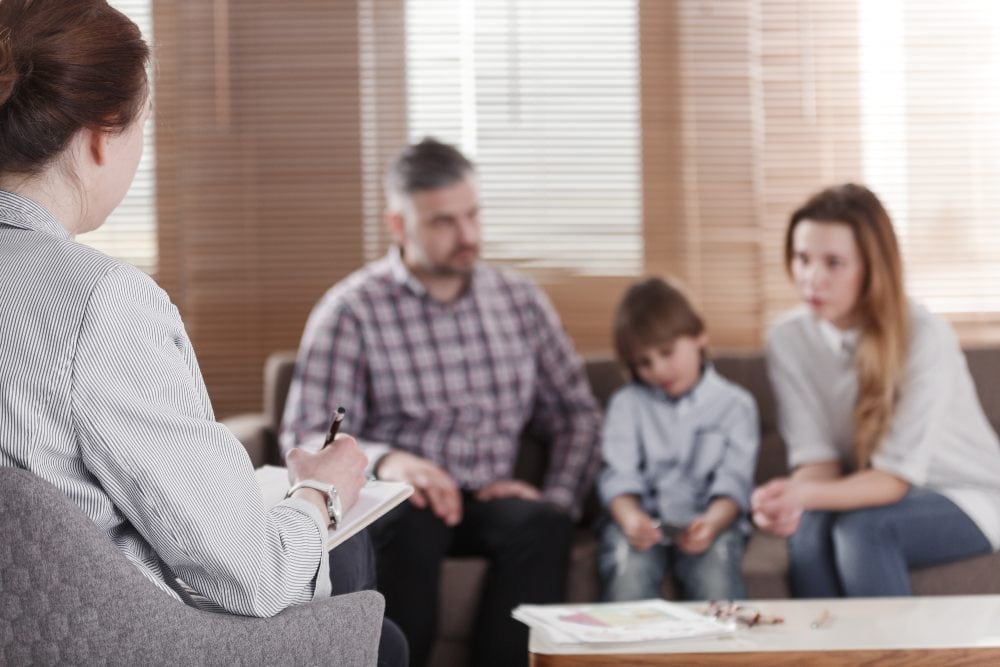Everything You Need to Know About Sole Parenting Responsibility in Australia
Understanding sole parental responsibility within Australian family law is crucial for parents navigating separation or divorce. This responsibility goes beyond mere custody; it delves into the rights and obligations a parent holds towards their child’s upbringing.
Disclaimer: This article is intended to provide a general guide to the subject matter. Specialist advice should be sought about your specific circumstances.
Definition and Legal Framework
Sole parental responsibility, a pivotal concept in Australian family law, entrusts one parent with the complete authority to make significant long-term decisions about their child’s welfare. This authority spans critical areas, including education, health, and cultural upbringing, significantly influencing parenting arrangements post-separation.
Legal Context and Parental Duties
Under the Family Law Act 1975 (Cth), this responsibility encompasses all legal duties and powers parents hold over their children. It marks a shift from shared parenting responsibilities, allowing one parent to address significant long-term issues affecting the child’s life unilaterally.
Criteria for Granting Sole Responsibility
Before granting sole custody, the court considers reasonable grounds, such as child safety and parental capability. These grounds guarantee decisions align with the child’s best interests, especially when joint decision-making might lead to conflict or serious physical or psychological harm.
Impact on Parenting Dynamics
Sole parental responsibility differs from sole custody, primarily in the scope of decision-making. While sole custody often refers to physical care and living arrangements, sole parental responsibility focuses on the authority to make significant life decisions for the child without needing consultation or agreement from the other parent.
At JJ Lawyers, we specialise in providing clear, informed guidance on this complex topic, ensuring our clients are well-equipped to make the most suitable decisions for their children. Dial 02 8005 3075 today for a consultation!
Situations Leading to Sole Parental Responsibility
Sole parenting responsibility is a significant legal decision that impacts a family’s dynamics, especially in the context of a child’s upbringing and well-being. This section explores the various scenarios that can lead to one parent being granted this responsibility.
Instances of Domestic Violence
- Domestic Violence as a Decisive Factor: The presence of domestic violence is a critical factor in family law cases. Courts often grant sole parental responsibility to protect children from environments where they might witness or experience abuse.
- Impact on Children’s Safety: The priority is ensuring the children’s safety and emotional well-being, moving away from shared responsibility in cases where one parent poses a risk.
Medical Treatment Decisions
- Sole Authority in Health Matters: When parents have irreconcilable differences regarding their child’s medical treatment, the court may grant sole parenting responsibility to one parent. This ensures decisions vital to the child’s health are not delayed or hindered by parental conflict.
- Addressing Medical Emergencies: When quick and decisive action is required for a child’s health, sole parental responsibility becomes crucial to avoid detrimental delays.
Protecting from Psychological Harm
- Emphasis on Emotional Well-being: The court recognises the impact of psychological harm on a child’s development. Parental actions or environments that contribute to such harm can lead to the awarding of sole parenting responsibility.
- Prioritising Mental Health: This approach reflects a commitment to safeguarding the child’s mental and emotional health, similar in importance to physical safety.
Relation to Children in Legal Terms
- Legal Interpretation: The court’s decision considers the broader relation to children, encompassing their overall welfare, stability, and development.
- Evaluating Parent-Child Dynamics: Each case is assessed on its unique factors, considering how shared or sole decision-making rights might affect the parent-child relationship.
Granting sole parental responsibility is a measure taken to protect children from physical and psychological harm, focus on their well-being, and resolve conflicts in parental views, especially regarding safety, health, and psychological welfare.
The court’s decisions are always guided by what serves the child’s best interest, taking into account their need for stability, safety, and a nurturing environment.
Breakdown in Parental Relationship
- A complete breakdown in the parental relationship, especially concerning children, can lead to sole parenting responsibility. If parents cannot communicate or collaborate on essential aspects of their child’s life, the court may find it in the child’s best interest to have one parent make all significant decisions.
Ensuring Child’s Best Interests
- The overarching principle in these decisions is the child’s best interest. Whether it’s due to domestic violence, conflicting views on medical treatment, or risk of harm, the court’s primary focus is to ensure the child’s safety, health, and psychological well-being are prioritised.

Obtaining Sole Parental Responsibility
Securing sole parental responsibility is an intricate process that requires meticulous legal representation and a strategic approach. Engaging with experienced family lawyers specialising in parenting matters is often the first step towards navigating this legal challenge.
Role of Family Lawyers
- Family lawyers guide you in preparing your case, including collecting evidence such as witness statements.
- They help articulate the exceptional circumstances that justify sole parenting responsibility.
Making a Genuine Effort
- Courts require evidence of a genuine effort to resolve parenting matters before considering sole responsibility.
- This includes attempts at mediation or collaborative parenting where feasible.
Evidence and Witness Statements
- Compiling strong witness statements that support claims of the other parent’s inability to contribute positively to parenting matters is necessary.
- Courts assess these statements meticulously to determine their impact on the child’s well-being.
Exceptional Circumstances
- Exceptional circumstances must be demonstrated for a court to consider awarding sole parental responsibility. This may include evidence of domestic abuse, substance abuse, or significant parental incapacity.
The Court’s Consideration
- The court evaluates whether shared responsibility would harm the child’s interests.
- Sole parenting responsibility is granted when it is clear that one parent is best placed to make decisions in the child’s best interests.
Parents can navigate the complexities of obtaining sole parental responsibility with the guidance of family lawyers, a well-prepared case, and clear evidence.
We are experienced in handling such sensitive cases with professionalism and a thorough understanding of family law. Get in touch with us at 02 8005 3075 today for a consultation!
Comparison with Shared Parental Responsibility
What Makes Sole and Shared Parental Responsibility Different?
The distinction between sole and equal shared responsibility and parental responsibility is pivotal in family law, particularly in how it influences parenting time and decision-making.
- Parenting Time and Decisions: In shared responsibility, both parents contribute equally to significant decisions, but day-to-day decisions are typically made by the parent with whom the child resides.
- Family Court of Australia’s Role: The court assesses if shared responsibility serves the child’s best interests. Efficient evidence is needed for a parent arguing for sole responsibility, particularly in proving that shared decision-making poses an unacceptable risk to the child.
- Protecting Children from Harm: Sole responsibility is considered when shared decision-making could expose children to harm, whether physical, emotional, or psychological.
- Assessing Unacceptable Risk: The court weighs unacceptable risks to the child’s welfare when deciding between shared or sole parenting responsibility.
Myths and Misconceptions
Debunking Sole Parental Responsibility Common Beliefs
The topic of sole parental responsibility is rife with myths and misconceptions, often leading to confusion among those navigating family law. Family law experts frequently address these misunderstandings to clarify clients’ rights and responsibilities.
- Family Lawyers Sydney and Child Custody: Family lawyers often need to clarify that sole parental responsibility differs from child custody, mainly concerning living arrangements, not decision-making powers.
- De Facto Lawyers and Parental Rights: De facto lawyers help clients understand that de facto relationships have similar considerations regarding parental responsibility as married couples, dispelling the myth that they’re treated significantly differently.
- Child Custody Lawyers’ Role in Child Support: Child custody lawyers explain what child support covers in NSW, which includes essentials for the child’s welfare but not necessarily all costs related to upbringing.
- Child Support Coverage Misconceptions: There needs to be more clarity about the scope of child support in NSW, with many assuming it covers more than it does, like extracurricular activities or private schooling without separate agreements.

Advice for Parents Seeking Sole Parenting Responsibility
Navigating the journey towards gaining sole parental responsibility can be complex and emotionally taxing. This guidance is aimed at helping parents understand the key aspects and prepare effectively for the legal process.
Understanding the Legal Landscape
- Grasping the Basics: Familiarise yourself with the legalities and criteria surrounding sole parental responsibility. Knowledge is power in legal battles.
Gathering Substantial Evidence
- Documentation is Key: Collect all relevant evidence that supports your case, including records of communication with the other parent, instances of domestic violence, or anything that highlights your concern for the child’s welfare.
- Evidence of Parenting Ability: Demonstrate your ability to effectively handle sole parenting responsibility.
Legal Representation
- Seek Expert Advice: Consult with a specialised family law expert who can provide tailored advice and represent your interests in court.
- Understanding Your Rights: A lawyer can help you understand your rights and the most appropriate strategies to present your case.
Communication and Cooperation
- Document Interactions: Keep records of all interactions with the other parent, especially those demonstrating your willingness to cooperate for your child’s best interest.
- Stay Composed and Reasonable: Displaying a cooperative and reasonable attitude can positively influence court perceptions.
Prioritising the Child’s Best Interests
- Child’s Welfare at Forefront: Ensure that every decision and argument you present is centred around your child’s best interests.
- Psychological and Emotional Support: Consider the emotional impact of these proceedings on your child and provide proper support.
Preparing for Court Proceedings
- Understanding Court Expectations: Familiarise yourself with what to expect in court hearings and how to conduct yourself.
- Presenting a Coherent Case: Work with your lawyer to build a coherent and persuasive case that aligns with legal expectations.
Obtaining sole parental responsibility requires a comprehensive understanding of legal requirements, substantial evidence, expert legal guidance, and a child-focused approach. Preparing thoroughly and keeping the child’s welfare as the primary goal throughout the process is essential.
Wrapping Up
Sole parenting responsibility is a significant aspect of family law in Australia, impacting the lives of parents and children alike. Understanding its nuances is a must for those undergoing separation or divorce.
At JJ Lawyers, our commitment is to guide you through this intricate process, ensuring that your rights and your child’s best interests are protected – 02 8005 3075



